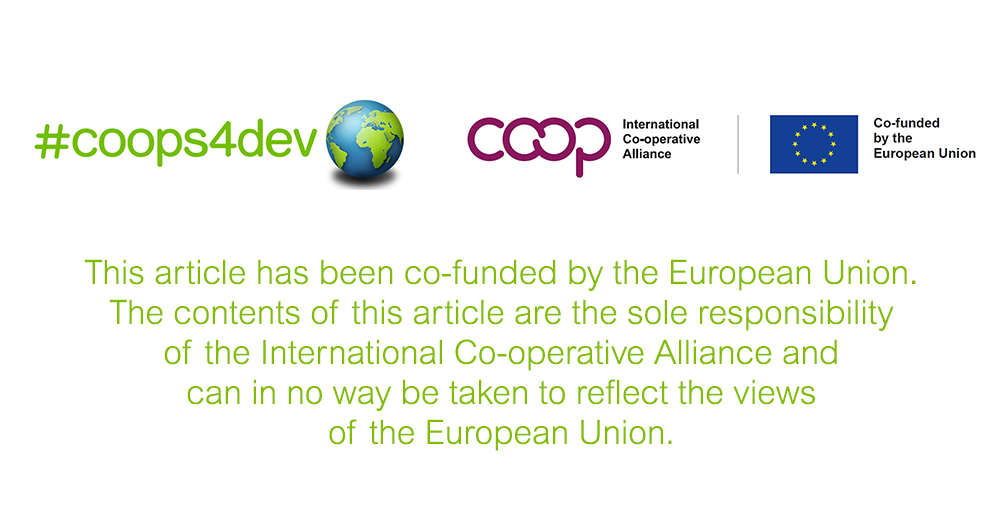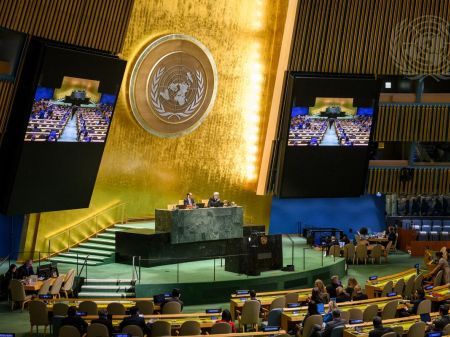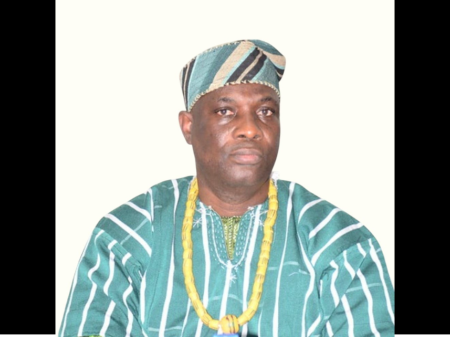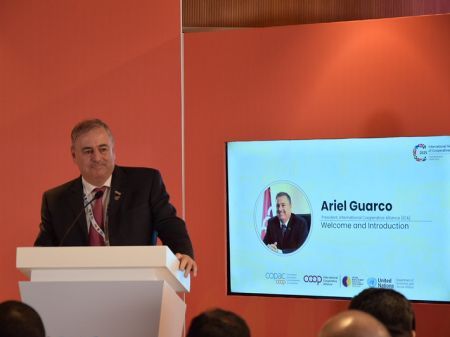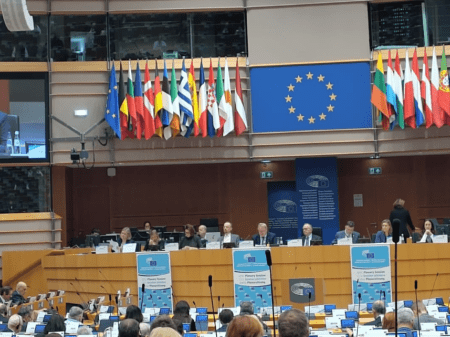
Global Cooperative Entrepreneurs (GCE) is an innovative mentoring programme that brings together young entrepreneurs with a brilliant coop idea with mentors from both the cooperative movement and youth organisations.
The GCE programme not only generates a global network of like-minded people, but it also works as a catalyser of new ideas to support young entrepreneurs to make their coop dream come true.
Young people from eight countries from all ICA regions take part in the programme – Indonesia, Malaysia, India, Zimbabwe, Uganda, Poland, Sweden, and Colombia. The GCE programme is an initiative by the ICA-EU Partnership (#coops4dev), inspired by the CoopStarter 2.0 Erasmus+ funded project coordinated by Cooperatives Europe.
Find out more about the programme in this brand-new webpage!
Despite the severe impact of the COVID-19 pandemic on the programme, youth entrepreneurs (also known as youth ambassadors) are showing a great capacity of resilience and finding ways to keep advancing on their cooperative business projects.
Today, we launch a series of interviews to meet some of the GCE youth ambassadors and mentors. They will tell us why they have chosen the cooperative model to start-up their business idea.
We start with the inspiring story of Aquila!

Brief description of your start-up idea
Sayur Mayur Ruteng is a consumer cooperative to support the economic development of local farmers, especially women, in Ruteng, Manggarai Regency. It consists in an online platform to sell vegetables and, thus, facilitate access to the market for producers and access to vegetables for the community. Sayur Mayur means vegetables in Bahasa and Ruteng is the name of the city where I live now.
----------
Explain us a bit why you chose this particular project? What elements made you think that there is a niche business and a social need for this service?
We believe that the life quality of the community can get better depending on what people eat. When the food is healthy, the growth of the individual will also improve, which will have a positive impact on the community. To get an excellent quality of food, it is important to involve farmers in improving their economy. The relationship between people who need healthy food and farmers who need to be paid better is a relationship that can be a beneficial business model and have a social impact. Our job is to bridging farmers and customers, both members and non-members in the coop.
How will your project benefit your community?
In carrying out this project, Sayur Mayur Ruteng divides its objectives into three parts which we believe can provide long-term benefits for the community:
- In the short term, helping businesses in agriculture and local livestock to market their products and facilitate access to food for the community;
- In the medium-term, establishing relationships between farmers, ranchers and communities to create a ‘new local market’ segment with the help of technology;
- In the long term, as a collaborative working platform between farmers, breeders, processors, customers, and local governments to improve the economy and increase public awareness about healthy food, also creating new jobs for unemployed young people.
When you start up a business project in your country, what are in your opinion the most important elements to facilitate the accomplishment of your project (e.g. a mentoring service, access to finance, a supportive regulation, bureaucracy)?
Even though we are engaged in agriculture, we do not have advanced knowledge in agriculture and we have learned many things since we started our business. In addition, networking is also very necessary to run projects. We have learnt from people who have worked in community development and with farmers before us. Currently, Sayur Mayur Ruteng collaborates with over 10 farmers to supply and several volunteers to learn together. One volunteer working with Sayur Mayur Ruteng is a representative from the At-Taqwa Modern Islamic School (Pondok Pesantren Modern Sumber Daya At-Taqwa), which is guided by Kyai Tanjung to create a role model for the organic farming area as a learning place for the community. Currently, we are also designing and advocating for the Program Petani Muda Millennial (Millennial Young Farmers program) to support young farmers together with the local government.
What are the main challenges that you have encountered/are encountering to move on?
Sayur Mayur Ruteng was launched in May 2020, when the COVID-19 pandemic was entering Indonesia. One activity planned to be carried out by Sayur Mayur Ruteng is a capacity building campaign for members and farmers, which will involve many people. Therefore, Sayur Mayur Ruteng certainly needs sufficiently financial and qualified human resources capacity of trainers. Apart from waiting for the pandemic to subside, we are also mapping people who are interested in supporting our business while we move along by getting ready for future activities.
Is the COVID-19 pandemic impacting your GCE agenda? If so, how is it impacting and what measures are you taking to continue with your start-up idea?
The COVID-19 pandemic has affected our project. Previously, we had planned to involve school students in this project. Our idea was to start student cooperatives, that could become a forum for education and economic improvement and a space to prepare students after school. But as schools have switched to an online system, there are no activities at the school. While we wait for better conditions, we empower local farmers who can become role models.
Is the cooperative model offering more elements of resilience to cope with the current COVID-19 crisis than other types of business models?
Of course. With a pandemic that has increased food prices, the cooperative business model can also raise awareness of the collective need for quality food for families. Also, the cooperative model that we have implemented can be productive for the team involved, as some parties involved are people who have lost their jobs because of the COVID-19 pandemic.
What is your projection for the near future?
Following Sayur Mayur Ruteng’s long-term goals, we hope this cooperative can become a collaborative working platform for community work in the agriculture sector in Ruteng. We are currently designing a collaboration with the local government. We expect this to be the first step in the cooperative movement, especially among young people, to advocate for food issues in the region.
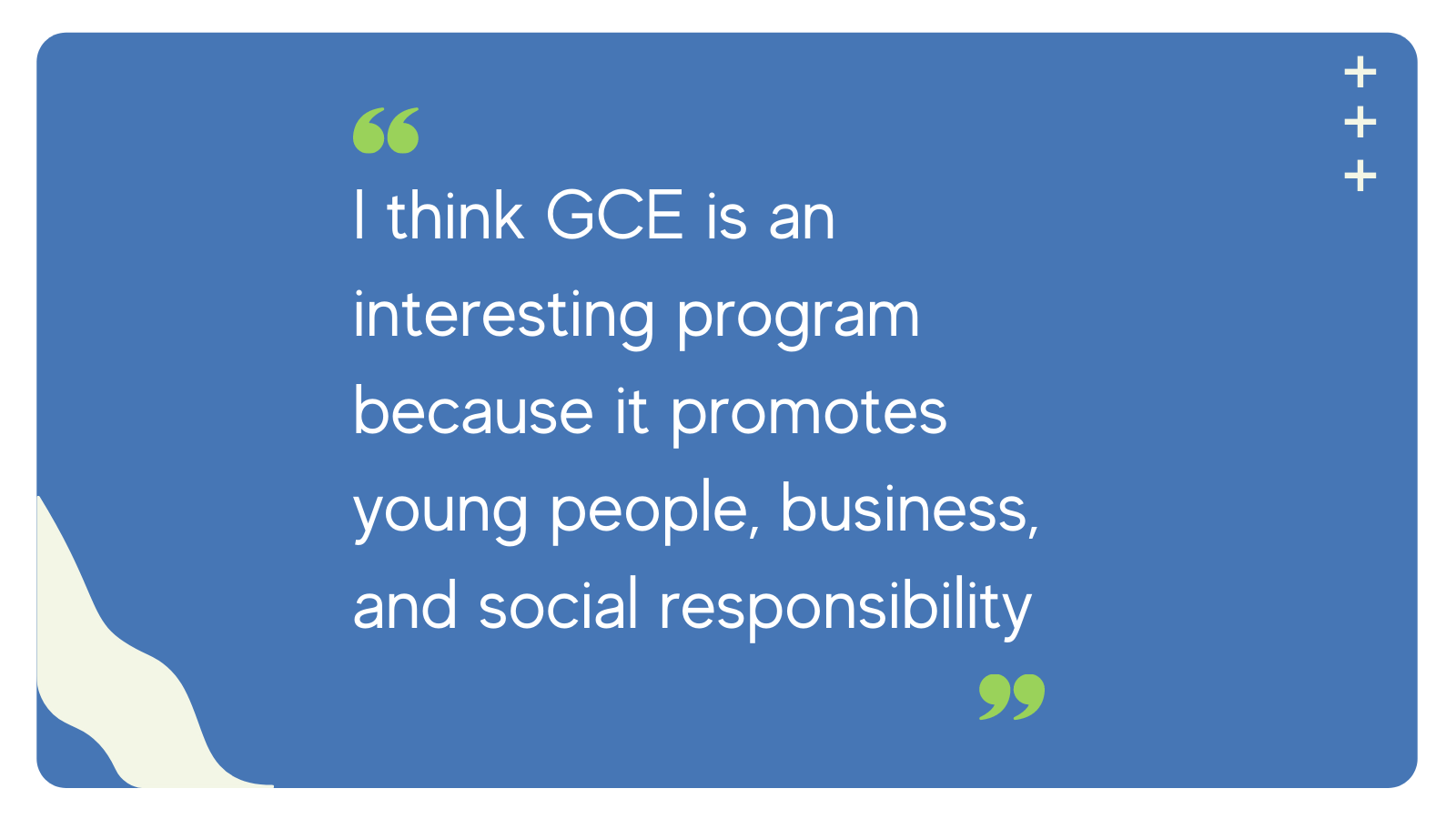
How did you hear about the GCE programme?
I found the GCE program through the WhatsApp youth activist group that I joined when I was looking for information on the cooperative business model for an earlier work. Many young people leave their village to look for work, while in their village they have abundant resources. I think GCE is an interesting program because it promotes young people, business, and social responsibility.
Why did you decide to become GCE Youth Ambassador?
This program is very interesting because, where I live, many people of my age only recognize cooperatives as a place for savings and loans, even though cooperatives can be developed in any business field. Aside from that, if we don’t learn and move to improve the image of cooperatives in our regions and promote them as role models, then who will do it?
How can the GCE programme help you to make your entrepreneurial project happen?
The GCE program has put me together with mentors, other ambassadors, and many cooperators working in different sectors, who have provided various viewpoints on this business model. Thanks to these exchanges, I see the business differently: not only beneficial for members, but also having a positive impact on others.
Why do you think the cooperative is the best business model for your project?
A common challenge in starting a business is capital. When you start your own business, it will be more difficult than starting it together with other people. The GCE program gave me insight about starting and doing business: about how business can be profitable for many parties and raising awareness of the needs in the community itself.
----
The ICA-EU Partnership on international development (also known as #coops4dev) was signed in 2016 between the International Cooperative Alliance and the European Commission to strengthen the cooperative movement as key actor in international development.
Read more about #coops4dev on our website.
